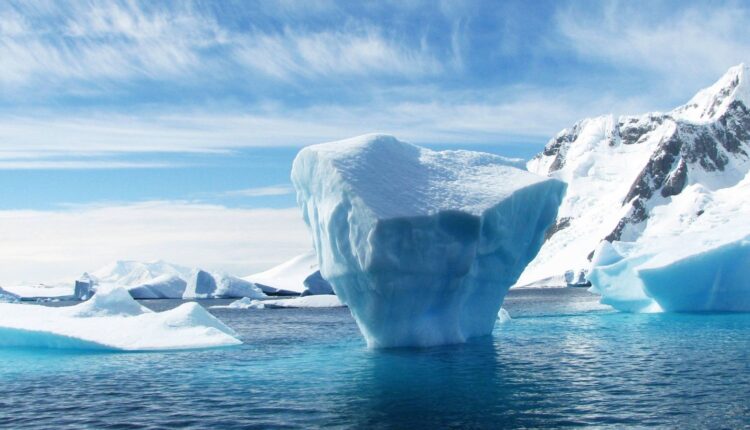Antarctica’s record-breaking heatwave marks year of climate extremes
Warmer temperatures throughout 2022 saw sea-ice records smashed, the latest State of the Climate report says.
A record-breaking heatwave and a new all-time low for sea-ice cover marked 2022 as a year of alarming extremes in Antarctica, the latest State of the Climate report shows.
The report, an annual review of the world’s climate, confirmed greenhouse gases, global sea level, and ocean heat all hit new highs in 2022. Antarctica’s temperature and sea-ice records were also broken, said Dr Kyle Clem, lead editor of the report’s chapter on Antarctica and the Southern Ocean and a lecturer in climate science at Te Herenga Waka—Victoria University of Wellington.
“An unprecedented heatwave hit East Antarctica in March 2022, pushing temperatures in the cold, high elevation interior to a new all-time high of −9.4°C. This far exceeds the March average of −53.4°C and resulted in significant surface melting along the East Antarctica coast. Shortly after, we saw the collapse of the critically unstable Conger Ice Shelf,” Dr Clem said.
Warmer temperatures throughout 2022 also saw more than 100 days of record-low sea ice around the continent.
Dr Clem said the lack of sea ice left the northeast Antarctic Peninsula particularly exposed to ocean swells.
“A major ocean swell was able to reach the Antarctic Peninsula in late January and we saw the disintegration of a large section of decade-old fast ice—sea ice that’s attached to the coast—over a period of just three weeks, causing a rapid retreat of upstream glaciers.
“The record-low sea-ice coverage observed last year has continued and worsened this year, with a new all-time annual record low recorded in February 2023.”
2022 also saw the loss of an estimated 2,100 gigatonnes (Gt) of glacial ice.
“Most of this ice loss was from the rapidly retreating West Antarctic Ice Sheet around the Amundsen Sea Embayment, where there has been a long-term trend of significant ice sheet loss due to warming ocean temperatures melting away the ice sheet from below the surface.”
Despite this loss, extreme heavy snowfall during the year resulted in an overall gain in Antarctica’s ice mass—the first time a net mass gain has been recorded since satellite measurements began in 2003.
“While 2,100 Gt of glacial ice was lost, heavy snowfall associated with atmospheric rivers added an estimated 2,400 Gt of surface mass to the continent. This meant Antarctica gained approximately 300 Gt of mass.
“This is remarkable and highlights the complex interplay of snowfall versus melting in Antarctica in a warming world. A warmer world will both melt ice and increase snowfall intensity, potentially even leading to more rainfall events.”
The rise in Antarctica’s surface mass meant it didn’t add to global sea level rise in 2022.
“The ice gain on the continent meant Antarctica actually contributed a sea level reduction of a little under 1 mm. However, ice loss from other regions of the world, along with continued oceanic heating and thermal expansion, saw total global sea level rise to a new all-time record of 101.2 mm above 1993 levels.”
Several of 2022’s record-breaking events on the Antarctic continent were linked to two strong atmospheric conditions that dominated the region: a deep low in the Bellingshausen, Amundsen and Ross Seas, and a strong blocking high in the southwest Pacific.
“These conditions resulted in a persistent warm northerly flow together with an unusually high number of atmospheric rivers—long bands of moisture-laden air,” said Dr Clem.
The State of the Climate report also records that 2022 saw one of the longest-lived ozone holes.
“The Antarctic ozone hole is still a prominent feature of the Southern Hemisphere during the spring and summer. In 2022, it developed again during August and September and didn’t break up until 16 December, marking one of the longest-lived ozone holes on record. However, its total size was near-average and it had a slower-than-average growth rate, which are signs of continued ozone recovery,” Dr Clem said.


Comments are closed.